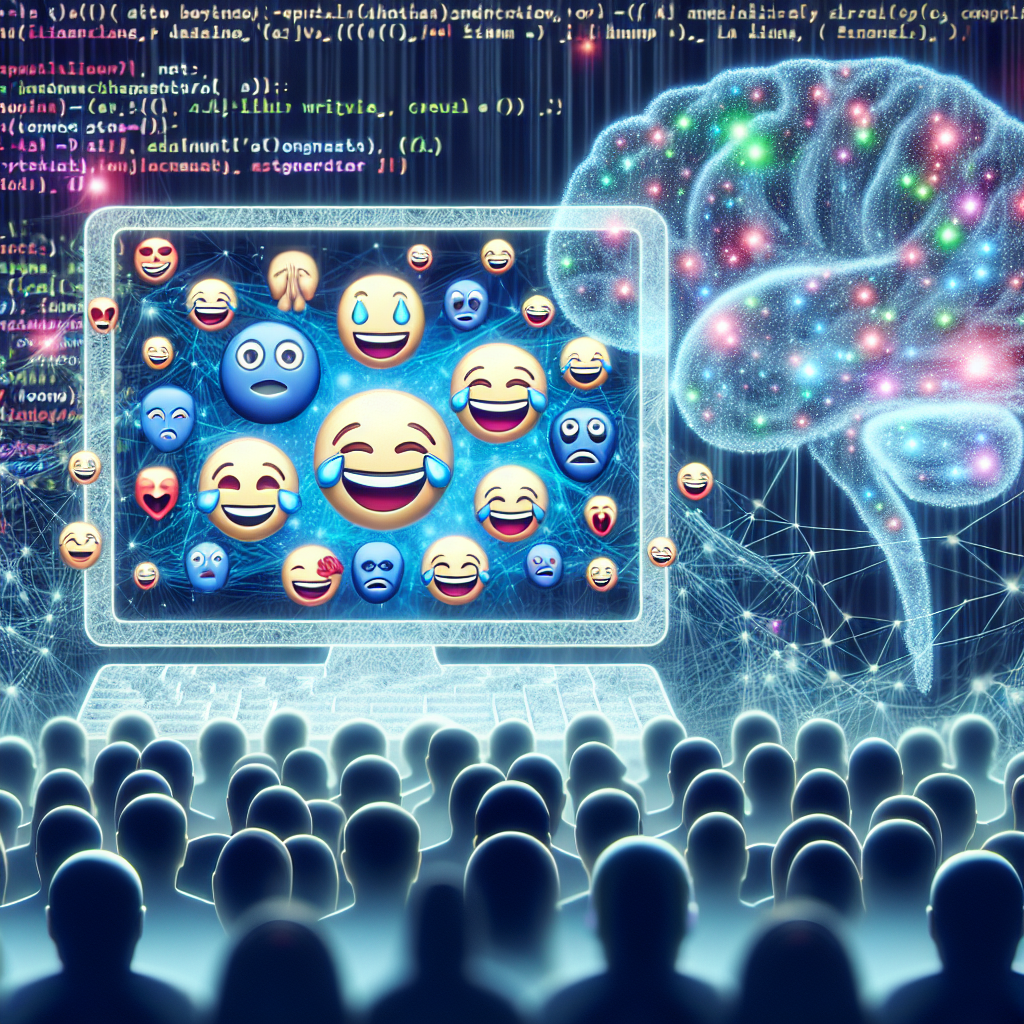Artificial intelligence (AI) has infiltrated nearly every aspect of our lives, from helping us navigate our smartphones to predicting our shopping preferences. But one area that may come as a surprise is comedy writing. Yes, you read that right – AI is now being used to generate jokes and humorous content. In this article, we will explore how AI is shaping the future of humor and what it means for the world of comedy.
AI in Comedy Writing: The Basics
AI-powered tools are being used by comedians, writers, and content creators to generate jokes, scripts, and comedic content. These tools use machine learning algorithms to analyze large datasets of jokes, comedy sketches, and other humorous content to identify patterns, structures, and trends in humor. They can then generate new jokes and content based on this analysis.
One of the most popular AI tools used in comedy writing is GPT-3, developed by OpenAI. GPT-3 is a language model that can generate human-like text based on the input it receives. Comedians and writers can input prompts or ideas into GPT-3, and it will generate jokes, scripts, or other comedic content based on that input.
AI in Comedy Writing: How It Works
AI-powered tools like GPT-3 work by analyzing vast amounts of text data to understand the structure, patterns, and nuances of humor. They can learn from jokes, puns, comedic sketches, and other forms of humor to generate new content that mimics human-like humor.
For example, when a comedian inputs a prompt like “Why did the chicken cross the road?” into GPT-3, the AI model will generate a response like “To get to the other side.” This response is based on the analysis of similar jokes and punchlines in its dataset.
AI-powered tools can also be used to generate scripts for comedy shows, sitcoms, and other forms of comedic content. Comedians and writers can input prompts, character descriptions, and plot outlines into the AI tool, and it will generate dialogue, jokes, and scenes based on that input.
AI in Comedy Writing: The Benefits
AI-powered tools offer several benefits to comedians, writers, and content creators in the world of comedy. Some of the key benefits include:
1. Efficiency: AI tools can generate jokes and content quickly, saving comedians and writers time and effort in brainstorming and creating new material.
2. Creativity: AI tools can offer new perspectives and ideas for jokes and content that comedians may not have thought of on their own.
3. Consistency: AI tools can generate consistent and high-quality content, ensuring that comedians have a steady stream of material to work with.
4. Diversity: AI tools can analyze a wide range of humor styles, genres, and sources to generate diverse and inclusive content.
AI in Comedy Writing: Challenges and Limitations
While AI-powered tools offer many benefits, there are also challenges and limitations to using AI in comedy writing. Some of the key challenges include:
1. Lack of Context: AI models may struggle to understand context, tone, and cultural nuances in humor, leading to jokes that may fall flat or be offensive.
2. Originality: AI models may rely too heavily on existing jokes and content, leading to unoriginal or recycled material.
3. Bias: AI models can perpetuate biases and stereotypes present in the data they are trained on, leading to problematic or offensive content.
4. Human Touch: AI-generated content may lack the human touch, emotion, and spontaneity that is essential in comedy.
FAQs about AI in Comedy Writing
Q: Can AI replace human comedians and writers?
A: While AI-powered tools can generate jokes and content, they cannot replace the creativity, spontaneity, and emotion that human comedians and writers bring to their work. AI can be a helpful tool for generating ideas and material, but ultimately, comedy is a human art form that requires human connection and authenticity.
Q: Is AI in comedy writing ethical?
A: The ethical implications of using AI in comedy writing are complex and evolving. Comedians and writers must be mindful of the potential for bias, stereotypes, and offensive content in AI-generated material. It is important to use AI tools responsibly and thoughtfully to ensure that the content produced is inclusive and respectful.
Q: How can comedians and writers use AI in comedy writing?
A: Comedians and writers can use AI-powered tools to generate ideas, jokes, scripts, and other comedic content. They can input prompts, characters, and settings into the AI tool to generate new material based on that input. AI can be a valuable resource for brainstorming, inspiration, and creativity in comedy writing.
Q: Will AI change the future of comedy?
A: AI has the potential to revolutionize the world of comedy by offering new tools, perspectives, and possibilities for comedians and writers. While AI may not replace human comedians and writers, it can be a powerful tool for generating ideas, content, and material in the world of comedy.
In conclusion, AI is shaping the future of comedy writing by offering new tools, perspectives, and possibilities for comedians, writers, and content creators. While there are challenges and limitations to using AI in comedy writing, the benefits of efficiency, creativity, consistency, and diversity are significant. As AI continues to evolve and improve, it will be exciting to see how it influences the world of comedy in the years to come.

